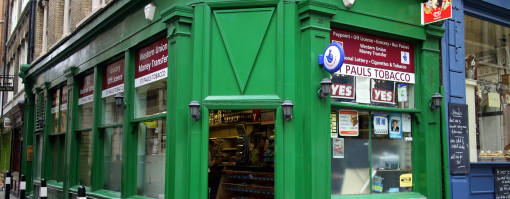Card use has continued to rise steadily from 54 per cent of transactions in 2016 to 61 per cent in 2019, with further acceleration this year during the Coronavirus pandemic.
This is according to the British Retail Consortium’s (BRC) latest payment survey, which also showed that the cost to retailers of accepting payments reached £1.1 billion in 2019 – of which £950 million was from card payments.
While card payments account for four in every five pounds spent in retail, they also incur the largest charges, with shops charged an average of 18.4 pence per credit card transaction - up 15 per cent from 2016 - and 5.9 pence for every debit card transaction - up six per cent from 2016. Businesses have also received notices in the past year of new fees that will now be charged to accept payments online.
The BRC argued that at a time when retailers are facing increasing costs due to Coronavirus and Brexit, the increasing scheme fees place further pressures on retailers.
The BRC has joined with the British Independent Retailers Association, Association of Convenience Stores, Federation of Small Business and UKHospitality to call for decisive action to tackle increasing scheme fees, protecting Britain’s businesses and consumers from excessive card costs which add to the price of goods and services.
This follows a review from the UK’s Payment System Regulator, alongside a Treasury consultation on the payments landscape, which closes today.
Andrew Cregan, head of finance policy at the BRC, commented: “With card payments accounting for almost 80 per cent of retail sales, it is vital that the government takes action to tackle excessive card costs – without action we will see businesses put under further pressure and it will be consumers who are forced to pay the price.”
Martin McTague, national policy and advocacy vice chairman at the Federation of Small Businesses, said that the costs that accompany acceptance of card payments represent yet another overhead for embattled small retailers.
“We urgently need to see moves to make card terminals more affordable, improve connectivity so all firms can install them, and up-skill business owners so they are confident in taking contactless payments – undoubtedly the safest way to pay in this climate.
“We also have to protect access to cash for as long as consumers want and need it,” he concluded, adding: “Let’s not forget that cash serves both as an important back-up for when card systems fail and a competitor to the handful of providers that dominate the card payment market.”
Latest News
-
Unilever taps Google Cloud to advance agentic commerce and tech capabilities
-
Waitrose renews contract with POS provider
-
Very Group secures long-term funding agreement
-
Topshop returns to UK High Streets through John Lewis partnership
-
Asda names B&Q marketing executive to lead brand strategy
-
Deliveroo to offer flexible funding for UK restaurants
Beyond Channels: Redefining retail with Unified Commerce
This Retail Systems fireside chat with Nikki Baird, Vice President, Strategy & Product at Aptos will explore how unified commerce strategies enable retailers to tear down these barriers and unlock new levels of operational agility and customer satisfaction.
The future of self-checkout: Building a system that works for consumers and retailers
In this webinar, industry leaders discussed what the future of self-checkout looks like and how retailers can make the technology work for everyone.
© 2024 Perspective Publishing Privacy & Cookies









Recent Stories